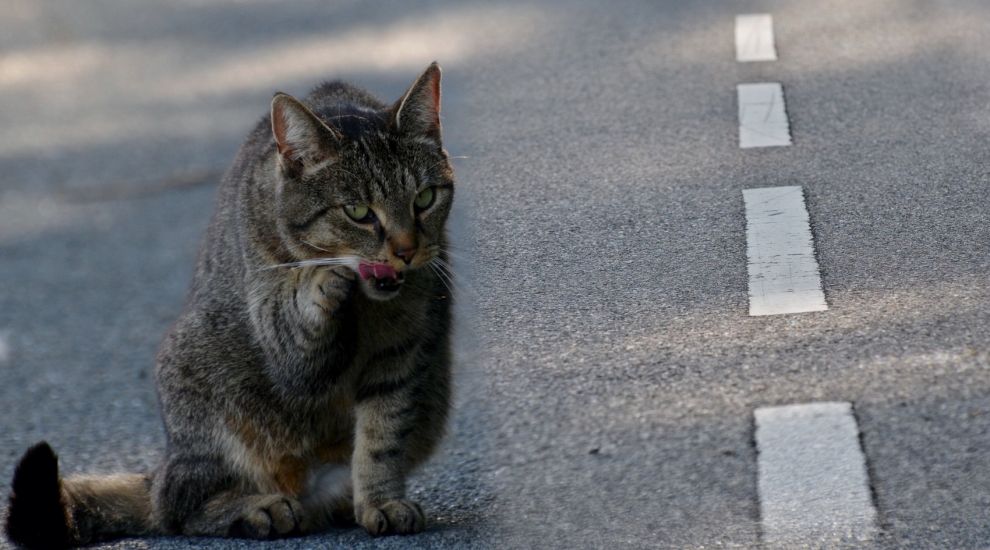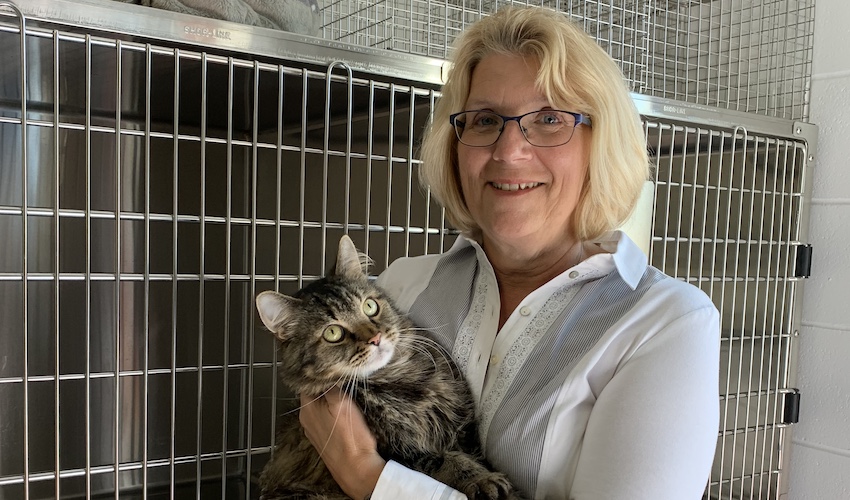


The JSPCA has said changes to the law to stop ‘hit and runs’ on cats should come into force “as soon as possible”, as it might help save pets’ lives.
The charity's CEO, Debra d’Orleans, shared her comments in a letter to the Scrutiny panel tasked with reviewing the proposals brought forward by the Infrastructure Minister, Deputy Kevin Lewis.
They followed politicians unanimously voting in favour of a proposition to give better protection to cats and help prevent hit-and-runs published in 2019 by Deputy Jeremy Maçon.
If approved, Deputy Lewis' Draft Regulations would make it an offence not to report hitting a cat with a motor vehicle, with a maximum fine of £10,000 and a potential disqualification for the driver. Drivers would instead have to stop “where it is safe to do so” and inform the JSPCA of the incident.
A local centenier recently voiced concerns about the proposed law, suggesting it would be “unpoliceable”, as it would be difficult to prove an offence had been committed.
Pictured: The JSPCA provide a 24/7 animal ambulance service.
The JSPCA are however fully supportive of the Minister's plans.
As Ms d’Orleans explained, they are the ones who have to deal with “the difficult call from both the member of the public who finds a dead cat and a distraught owner who has reported their cat missing” as they provide a 24/7 animal ambulance service.
In 2019 and 2020, they dealt with 76 and 58 road traffic accidents (RTA) involving cats respectively. Between January and July this year, the team has seen 32 cases.
Ms d’Orleans said the law would not only help families, who can sometimes spend days looking for their cat, get closure if their cat is discovered, but also help save lives by ensuring the pets can receive the help they need.
“Unfortunately, not everyone is passionate about animals and would not consider the impact on the animal or the owner who consider their pet part of the family,” she said.
“After an RTA, animals often go into shock. We can stabilise this using intravenous fluids, oxygen therapy and medications including pain killers. Another immediate risk is swelling of the brain due to head trauma – this is easier to treat if caught early. Emergency treatment at an earlier stage will give a better chance of survival.”

Pictured: Debra d’Orleans, the CEO of the JSPCA.
She went on to explain that, while an animal might look unharmed after an incident or run away, it is still important to alert the JSPCA, as it might have internal bleeding, ruptured organs, or broken bones which need to be treated.
“We have had a case very recently where someone reported that they had been involved in an RTA with a cat, but it had run off,” she explained.
“We put leaflets through the doors of a number of houses in the area and an owner came forward to say that their cat, which matched the description, had been acting strange so they took it to the vet who reported it had a head trauma, which they were able to treat.”
She added that the charity’s close relationship with the Jersey Cat Search group was “very fortunate” as they share information with its members to help find an injured cat.
She concluded her letter by calling for the law change to come into force "as soon as possible.”
Comments
Comments on this story express the views of the commentator only, not Bailiwick Publishing. We are unable to guarantee the accuracy of any of those comments.